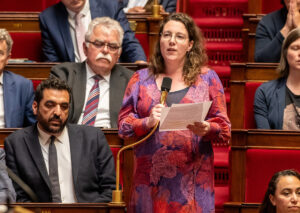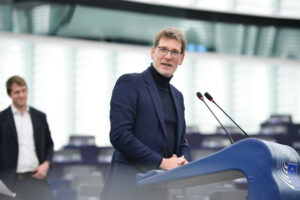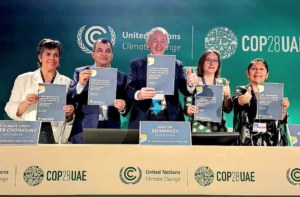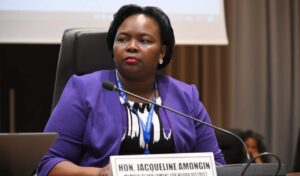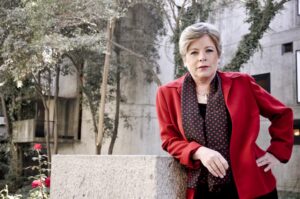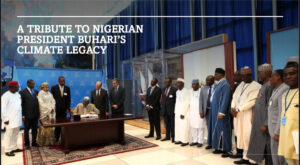
I ATTENDED COP28: This is what I did next… Hon. Françoise Uwumukiza MP
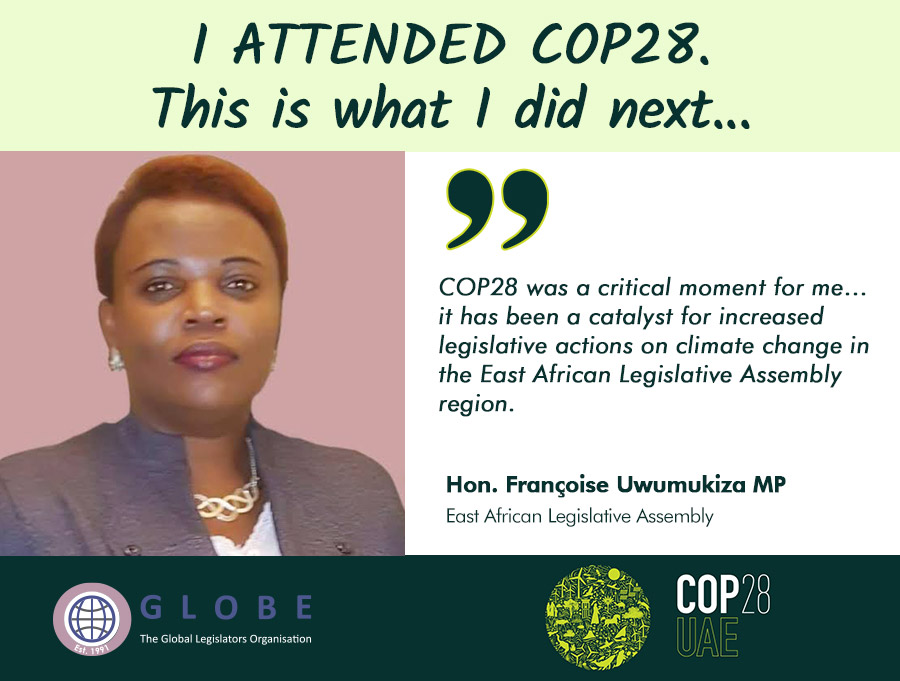
Parliamentarians have a key role to play in ensuring that decisions made at COPs are translated into action by their governments. This is due to their unique role as representatives of the people, and “auditors” of government. As we build-up to COP29, GLOBE as part of its role as the Focal Point of the UNFCCC informal Parliamentary Group has launched this blog series “I ATTENDED COP28: This is what I did next…” to chronicle actions undertaken by MPs post-COP28. This is a way of ensuring that MPs’ experiences and actions during and post-COPs are shared with a wider global community of parliamentarians, thought leaders, and decision makers.It will also serve as motivation for increased action by MPs after future COPs. The blog series will run until the week leading to the commencement of COP29.
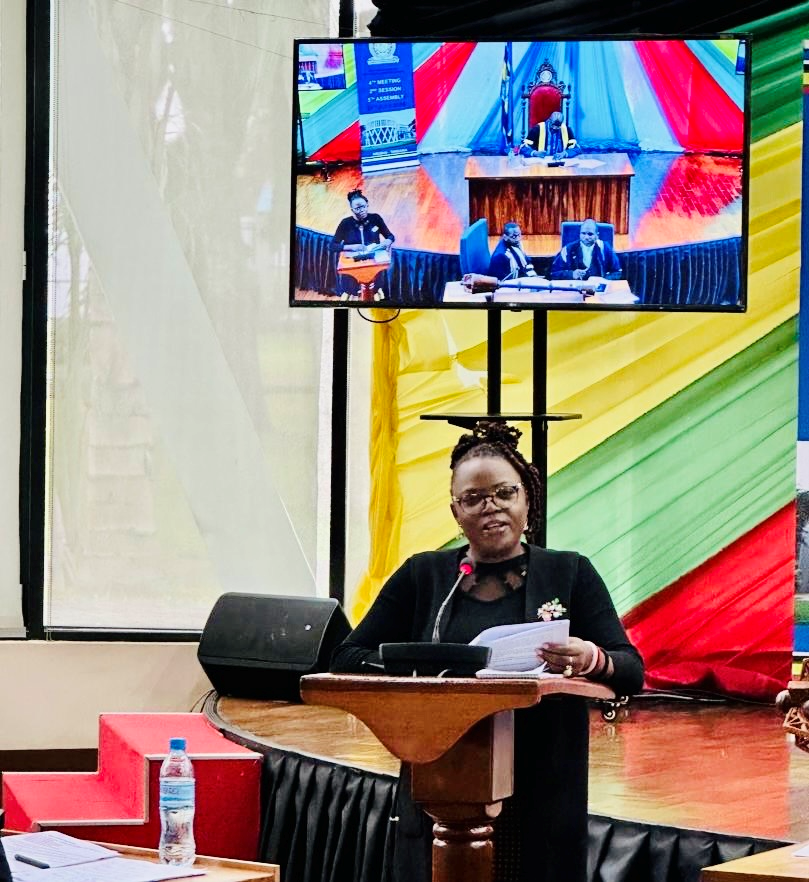
A COP newcomer from East Africa
The 28th Conference of Parties (COP28) of the United Nations Framework Convention on Climate Change (UNFCCC) held in Dubai, United Arab Emirates, was viewed as a pivotal moment for many of us. So, we approached it with a lot of hopes and belief that we stood at the threshold of history. For me, it was my first time of ever attending any of the UNFCCC COPs. I was thus elated when I was nominated by the Speaker of the East African Legislative Assembly (EALA), to be part of the East African Community’s delegation, in my capacity as the Chairperson of the Committee on Agriculture, Tourism and Natural Resources. The EAC delegation was led by former Secretary General, Honourable Peter Mathuki, with three EALA MPs as part of the delegation.
In recent times, East Africa has been besieged by many climate impacts ranging from drought to desertification, which ultimately have impacted massively on our means of livelihood. So, I arrived Dubai with a clear goal: it was time to push for accelerated climate action.
My objectives for COP28
I was very conscious of the need to significantly increase the pace of climate action in East Africa, leveraging on the mandate of our regional parliament, EALA. So, in Dubai, my specific objectives were to network and find ways through which we can push for more ambitious emissions reduction targets; rapid deployment of renewable energy; food systems transformation support; climate finance advocacy whereby developed countries were expected to fulfil their pledge to provide $100 billion in climate finance annually to developing countries; advance conversations on ensuring that just transition to a low-carbon economy is equitable.
Fortunately for me and other Members of Parliament, we were greeted in Dubai by the presence of the first-ever Parliamentary Pavilion hosted by GLOBE Legislators, with the motto ‘Parliaments Make COPs Count’. This offered us an incredible opportunity to network, learn from one another, have candid conversations on the state of things, and make our own contributions.
I would further speak at various other panels where, like I did at the COP28 Parliamentary Pavilion, I emphasised the need for countries especially developing countries to be supported to push for more ambitious targets in their Nationally Determined Contributions (NDCs); political will for fossil fuels phase-out and acceleration of investments on renewables; global cooperation; and transparency and accountability by all.
In the end, COP28 delivered. It delivered in the announcements for the tripling of global renewable energy capacity by 2030; establishment of the Loss and Damage Fund; agreement for the phasing out of fossil fuels; etc. For us, one of COP28’s unspoken delivery was the increased sense of camaraderie and unity which suddenly can be deduced.
Post-COP28 – Bringing the COP home
Post-COP28, I have not relented. One of the first things I did was to share the outcomes of COP28 with EALA MPs via our EALA platform. It was immensely important to me that the lessons learnt are translated into actions in the region.
As the Chairperson of the Committee on Agriculture, Tourism, and Natural Resources, I have a pivotal role to play in driving climate change action across partner states bearing in mind how climate change has indeed adversely impacted on these three key sectors.
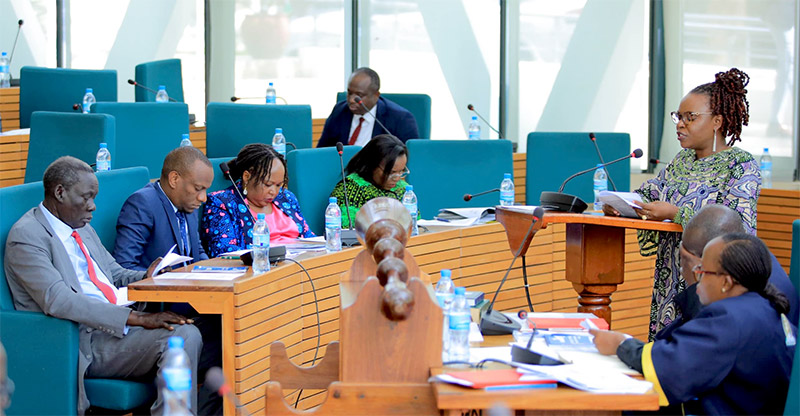
Building on Article 49 of the Treaty for the establishment of the East African Community, which stipulates legislative, oversight and representation roles for members of EALA, my interventions have followed these three prongs.
Advocating for strong regional climate policies and legal frameworks
I thus strove to develop and advocate for climate-smart policies especially policies that promote sustainable agriculture such as adoption of practices like agroforestry, conservation agriculture, water-efficient irrigation, agroecology, eco-tourism, biotechnology, and the natural resource management. Some of these, we have been working on in close collaboration with the UN Food and Agriculture Organisation (FAO) and ISAAA Afri-Centre. The idea is to strengthen environmental regulations in place, bring in new laws such as the Seeds and Plants Bill, as well as Single Use Plastic Materials Bill, in partnership with the Council of Ministers.
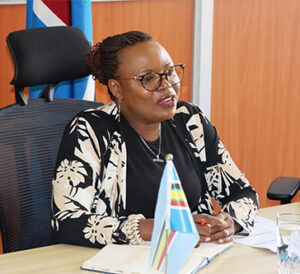 During various EALA climate change-related fora, I recalled that in 2021, the Assembly resolved to urge the Council of Ministers to expedite the process to introduce a regional Climate Change Bill in the House. We have thus continued to advocate for the Council to bring this important Bill to the House, in order to provide a regional legal framework to support adaptation and resilience.
During various EALA climate change-related fora, I recalled that in 2021, the Assembly resolved to urge the Council of Ministers to expedite the process to introduce a regional Climate Change Bill in the House. We have thus continued to advocate for the Council to bring this important Bill to the House, in order to provide a regional legal framework to support adaptation and resilience.
EALA is using its power to hold the Council of Ministers accountable for the implementation of climate policies and achieving climate goals. For instance, from 4th to 9th February, 2024, the Agriculture, Tourism and Natural Resources Committee conducted an oversight activity on the assessment of policies and laws on genetically modified organisms (GMOs) in the EAC partner states to support food security under climate resilience perspective in the region.
Furthermore, from 19th to 24th February, 2024, we also did an on-the-spot assessment of the implementation of projects by the Lake Victoria Basin Commission in Kisumu, Kenya and the Lake Victoria Fisheries Organisation in Jinja, Uganda to assess the implementation of projects by the two institutions and their contribution to food security and climate change resilience.
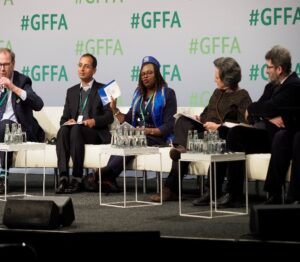 From 18th to 19th January, 2024, I participated as a panelist on the high-level panel “Realising the Right to Adequate Food: Ending hunger and leaving no one behind” at the 16th Global Forum for Food and Agriculture (GFFA) in Berlin, Germany, on the invitation of the Committee on World Food Security (CFS) and the Food and Agriculture Organization of the United Nations (FAO), which saw post-COP28 significant contributions from various parliamentarians.
From 18th to 19th January, 2024, I participated as a panelist on the high-level panel “Realising the Right to Adequate Food: Ending hunger and leaving no one behind” at the 16th Global Forum for Food and Agriculture (GFFA) in Berlin, Germany, on the invitation of the Committee on World Food Security (CFS) and the Food and Agriculture Organization of the United Nations (FAO), which saw post-COP28 significant contributions from various parliamentarians.
Following up from the huge commitment to tripling global renewables capacity by 2030, I wrote an article entitled “Tripling Africa’s Energy Capacity and Boosting Food Systems: A New Pathway to Action”. This initiative, supported by GLOBE Legislators, provided me with a platform to call on African legislators to do more in driving action for decarbonisation of the continent, and boosting of investments in renewables and Africa’s food systems.
Post-COP28 – New EALA Forum on Climate Action
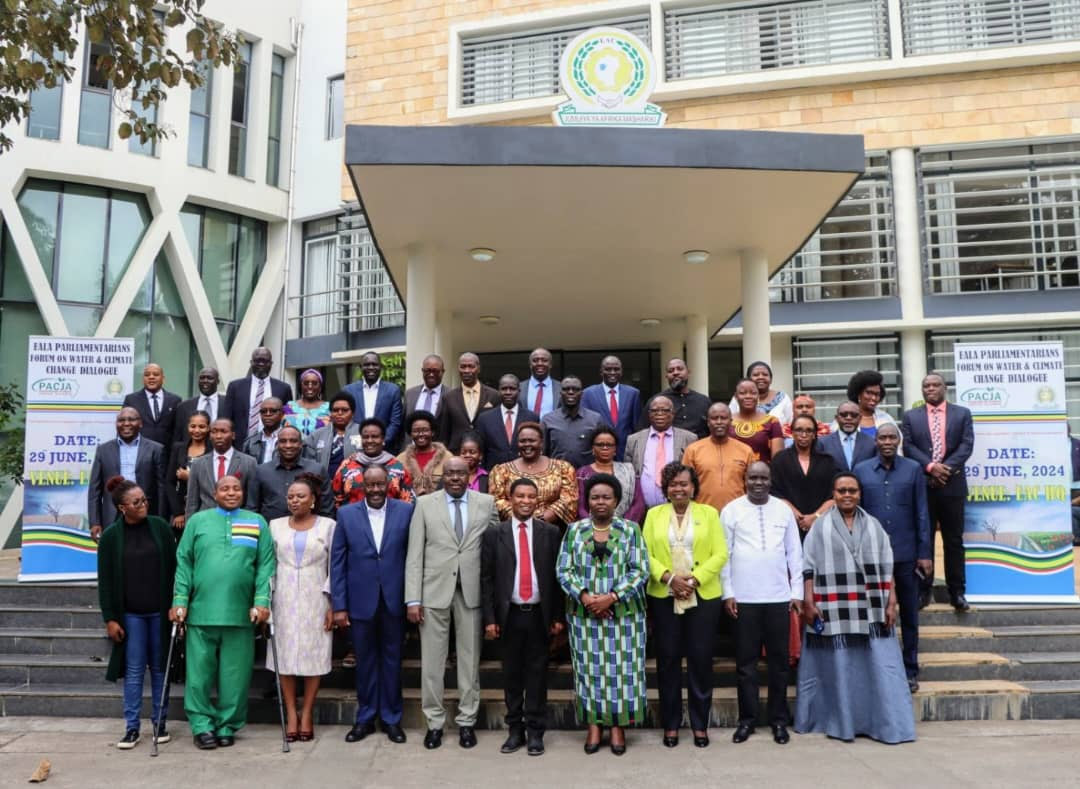
It is noteworthy that post-COP28, EALA has formed the EALA Forum on Climate Action.
This forum has already gone ahead to hold two key capacity building and awareness creation workshops for MPs. The first was held on 29th June, 2024, in the EALA Chamber, Arusha, the United Republic of Tanzania in partnership with the Pan-African Climate Justice Alliance (PACJA). The second was the Eastern Africa Parliamentarians Regional meeting which took place on 24th to 26th July 2024 at Mount Meru hotel in Arusha with support from the African Group of Negotiators Experts Support (AGNES). These capacity building workshops were convened, conscious of the fact that there exists a gap in technical knowledge of MPs on climate change legislation. So, they were basically our efforts at plugging this gap.
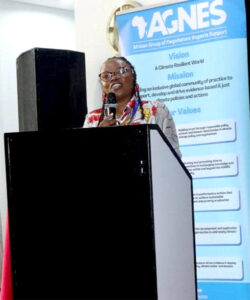 COP28 was therefore a critical moment for me and a lot of others from EALA as it has been a catalyst to increased legislative actions on climate change within the region. This was given further boost by the constant opportunity to engage and share ideas created first by the Parliamentary Pavilion, and then the monthly Parliamentary Group ‘Road to COP29’ webinars also convened by GLOBE Legislators to support parliamentarians and their staff.
COP28 was therefore a critical moment for me and a lot of others from EALA as it has been a catalyst to increased legislative actions on climate change within the region. This was given further boost by the constant opportunity to engage and share ideas created first by the Parliamentary Pavilion, and then the monthly Parliamentary Group ‘Road to COP29’ webinars also convened by GLOBE Legislators to support parliamentarians and their staff.
As we prepare for COP29, it is imperative that we do not let the momentum slow down.
*Honourable Françoise Uwumukiza is a Member of Parliament from the East African Legislative Assembly (EALA) and Chairperson of the Committee on Agriculture, Tourism and Natural Resources.

August 15, 2024

